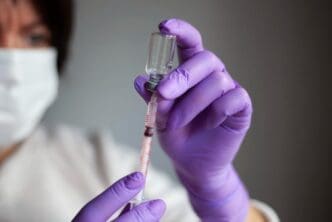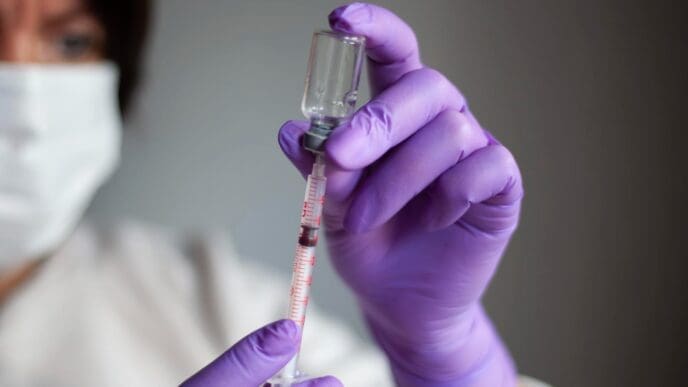The persistent fatigue, pervasive sadness, and brain fog you’re experiencing may not be solely in your head, but rooted deep within your body’s chemical messaging system. Across clinical settings, individuals are frequently diagnosed with mental health disorders like depression or anxiety when the true culprit is a hormonal imbalance, a physiological condition that can expertly mimic psychiatric symptoms. This diagnostic confusion stems from the profound influence that hormones—from the thyroid, adrenal glands, and reproductive organs—have on the brain’s mood-regulating centers, affecting everyone from adolescents to adults in mid-life and underscoring why a comprehensive medical evaluation is a critical, yet often overlooked, step in addressing mental health concerns.
The Intricate Dance: How Hormones Shape Our Mental State
To understand this connection, it’s essential to see hormones for what they are: powerful chemical messengers produced by the endocrine system. This network of glands, including the thyroid, adrenals, pituitary, and gonads, releases hormones into the bloodstream to regulate nearly every bodily function, from metabolism and growth to sleep and mood.
These messengers don’t just act on the body; they are potent neuromodulators that directly influence brain function. They can cross the blood-brain barrier to interact with receptors in key emotional and cognitive centers, such as the amygdala (the fear center), the hippocampus (memory and mood), and the prefrontal cortex (executive function and emotional regulation).
Hormones like estrogen, testosterone, and cortisol can alter the production and sensitivity of critical neurotransmitters, including serotonin (linked to well-being), dopamine (pleasure and motivation), and GABA (a calming agent). When hormone levels are optimal, this system works in harmony. When they become imbalanced, the resulting disruption can manifest as symptoms we readily label as psychological.
Common Culprits: Hormonal Imbalances That Mimic Mental Illness
While many hormones can impact mood, a few key players are notorious for masquerading as primary mental health disorders. Understanding their specific effects is the first step in untangling the symptom overlap.
Thyroid Dysfunction: The Great Pretender
The thyroid gland, located in your neck, produces hormones that act as the body’s master metabolic regulator. When it malfunctions, the mental health consequences can be profound and are frequently misdiagnosed.
Hypothyroidism, or an underactive thyroid, occurs when the gland doesn’t produce enough thyroid hormone. This slows down the body’s systems, leading to classic symptoms of depression: persistent fatigue, apathy, weight gain, difficulty concentrating, and a pervasively low mood. A patient presenting with these symptoms is a textbook case for Major Depressive Disorder, yet antidepressants may be ineffective if the underlying thyroid issue is not addressed.
Conversely, hyperthyroidism, an overactive thyroid, speeds everything up. It floods the body with excess thyroid hormone, creating a state of physiological overdrive. This can trigger intense anxiety, heart palpitations, restlessness, irritability, insomnia, and even panic attacks, mirroring the symptoms of Generalized Anxiety Disorder or Panic Disorder.
Adrenal Hormones: The Stress Response System
The adrenal glands sit atop the kidneys and produce cortisol, the body’s primary stress hormone. While essential for survival, chronic dysregulation of the Hypothalamic-Pituitary-Adrenal (HPA) axis—the body’s central stress response system—can wreak havoc on mental stability.
Prolonged stress can lead to sustained high levels of cortisol, which is linked to anxiety, agitation, sleep disruption, and a feeling of being constantly “wired.” Over time, the HPA axis can become blunted, leading to abnormally low cortisol levels. This state is often associated with crippling fatigue, burnout, low mood, and a reduced capacity to handle any stress, closely resembling depression or adrenal fatigue.
Sex Hormones: A Lifespan of Fluctuation
The ebb and flow of sex hormones like estrogen, progesterone, and testosterone throughout a person’s life create windows of vulnerability for significant mood changes. These are not just minor mood swings but can be severe enough to be mistaken for standalone psychiatric conditions.
For women, the sharp fluctuations in estrogen and progesterone during the menstrual cycle can lead to Premenstrual Dysphoric Disorder (PMDD). Far more severe than typical PMS, PMDD is a disabling condition characterized by severe depression, anxiety, and irritability in the week or two before menstruation. It is recognized as a depressive disorder in the diagnostic manual of psychiatry, directly linked to hormonal shifts.
The transition into perimenopause and menopause represents another major period of risk. As estrogen levels decline, many women experience new or worsening depression, anxiety, panic attacks, and significant cognitive complaints often called “brain fog.” These symptoms are frequently misattributed to life stress or a mid-life crisis, when hormone replacement therapy might be a more direct and effective treatment.
Similarly, the dramatic plunge in hormones after childbirth is a key biological driver of Postpartum Depression (PPD). This is not the “baby blues” but a serious depressive episode requiring intervention.
Low testosterone, in both men and women, is also a significant factor. It is strongly linked to symptoms of depression, including low motivation, fatigue, irritability, and a diminished sense of vitality and well-being. In men, it’s often considered, but in women, it’s a frequently overlooked cause of mood and energy problems.
Blood Sugar and Insulin
The hormone insulin regulates blood sugar, and imbalances can have a direct impact on the brain. Both hypoglycemia (low blood sugar) and hyperglycemia (high blood sugar) can cause symptoms that mimic anxiety, such as shakiness, sweating, irritability, and confusion. The sudden rush of adrenaline during a hypoglycemic episode can feel identical to a panic attack, leading to misdiagnosis.
Untangling the Symptoms: The Challenge of Diagnosis
The primary reason hormonal imbalances are so often mistaken for mental health disorders is the significant symptom overlap. A physician hearing a patient describe fatigue, low mood, and poor concentration will understandably think of depression first, as it is far more common.
Standard psychiatric evaluations do not typically include routine blood work to screen for hormonal issues. This creates a diagnostic blind spot where clinicians may initiate psychiatric medications or therapy without first ruling out an underlying physiological cause. Treatment may stall or fail because it’s not targeting the root problem.
Furthermore, patients themselves may not connect their physical symptoms (like hair loss, temperature sensitivity, or changes in menstrual cycles) to their mental state. This underscores the need for clinicians to take a detailed patient history that goes beyond psychological symptoms to include a full review of physical health and life stages.
Advocating for Your Health: How to Get the Right Answers
If you suspect your mental health symptoms might have a hormonal component, it is crucial to become an active advocate for your own health. A proactive and informed approach can help you and your doctor uncover the true source of your struggles.
Start with Your Primary Care Physician (PCP)
Your journey should begin with a thorough conversation with your family doctor or a general internist. Before your appointment, keep a detailed symptom journal for several weeks. Track your mood, energy levels, sleep patterns, anxiety, and cognitive function, alongside physical symptoms and, if applicable, your menstrual cycle. This data provides invaluable clues.
What to Ask For: Key Blood Tests
When you speak to your doctor, specifically request a comprehensive evaluation of your hormone levels. Key tests to discuss include:
– A Full Thyroid Panel: This should include not just TSH (Thyroid-Stimulating Hormone), but also Free T4, Free T3, and thyroid antibodies (TPO and TGAb) to screen for autoimmune thyroid conditions.
– Sex Hormones: Depending on your age, sex, and symptoms, this may include Estradiol, Progesterone, Total and Free Testosterone, and DHEA-S.
– Adrenal Hormones: An A.M. cortisol test can provide a snapshot of adrenal function.
– Blood Sugar Regulation: Hemoglobin A1c (HbA1c) and a fasting insulin test can assess long-term blood sugar control.
It is important to remember that laboratory “normal” ranges are often very broad. Feeling your best may require being in an “optimal” part of that range, a concept many functional and integrative medicine doctors emphasize.
Working with Specialists
If initial tests are inconclusive or reveal an imbalance, your PCP may refer you to an endocrinologist, a specialist in hormone disorders. For a more holistic view, some patients find success with functional or integrative medicine practitioners who specialize in identifying the root causes of complex symptoms.
The ideal approach is collaborative care, where your medical doctor and mental health therapist work together. This ensures that both the physiological and psychological aspects of your well-being are being addressed simultaneously.
A Holistic View of Mental Wellness
The connection between our hormones and our minds serves as a powerful reminder that mental health is not separate from physical health. The symptoms of anxiety and depression are real regardless of their origin, but their treatment must be tailored to the correct cause. Ignoring the body’s intricate biochemistry in the pursuit of mental wellness is like trying to fix a flickering light without checking the wiring first.
By embracing a whole-person perspective, advocating for thorough diagnostic testing, and demanding integrated care, we can move beyond a one-size-fits-all approach to mental health. Uncovering a hormonal imbalance can be a life-changing revelation, offering a clear path to recovery and validating the profound truth that how you feel mentally is inextricably linked to how your body is functioning.












